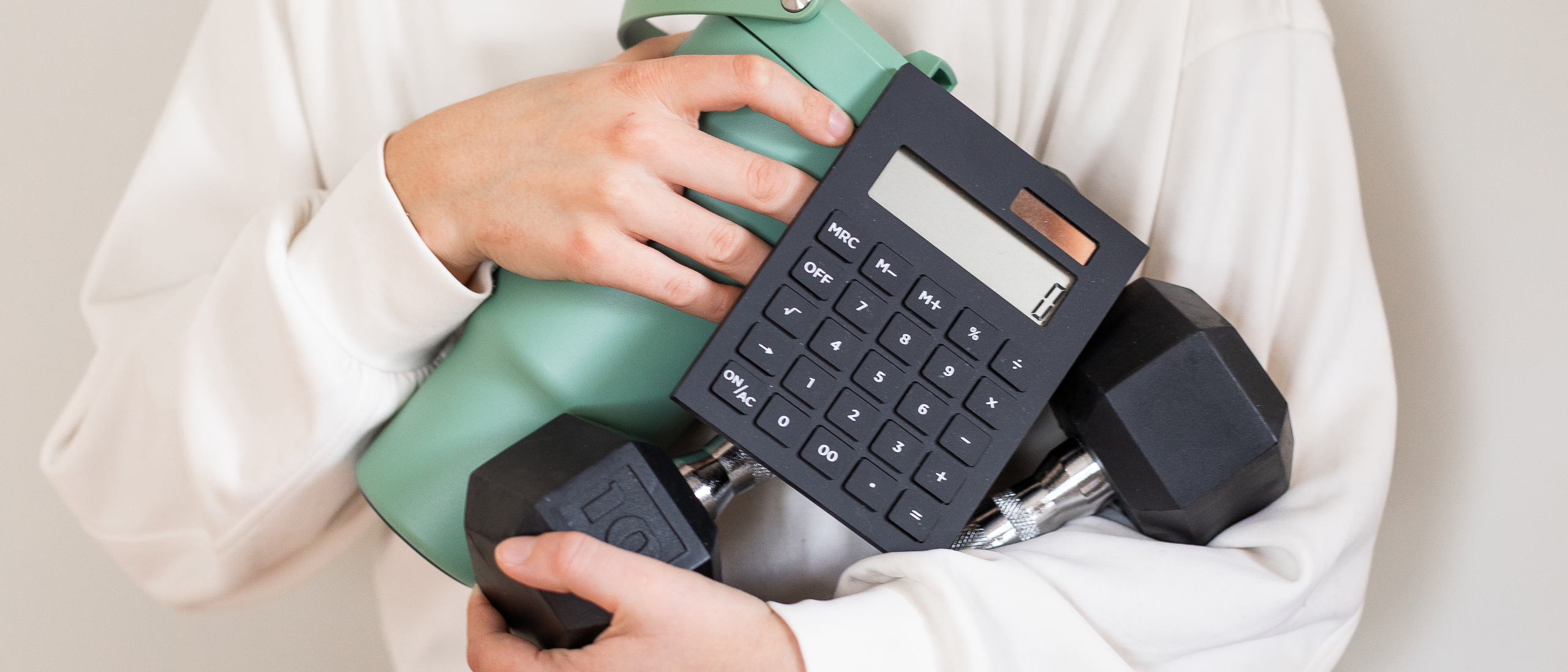As a small business accountant, the question I probably get more than any other is, “Can I deduct this?” And it makes sense—small business owners work hard for their money, and want to save every penny they can from getting taxed.
The good news is, a lot of the expenses that go into building and growing your business are tax deductible. The bad news is, with so many deductible expenses, it’s hard to keep track, and can be easy to forget an expense that you should be writing off.
I’m here to help, with a complete guide to small business tax deductions. We’ll talk through the most applicable expense categories in Schedule C (for sole-proprietors) and Form 1120 (for corporations), some typical small-biz costs that are umbrellaed under them, as well as any pro tips for taking advantage of these write-offs.
Deductions we’ll walk through include:
[one_half boxed=”true”]- Advertising
- Business use of your home
- Car and truck expenses
- Charitable contributions
- Commissions and fees
- Contract labor
- Cost of goods sold
- Depreciation and amortization
- Employee benefits programs
- Insurance
- Interest
- Legal and professional services
- Office expenses
- Rent or lease
- Repairs and maintenance
- Supplies
- Taxes and licenses
- Travel and meals
- Utilities
- Wages
- Other expenses not to forget!
As far as tracking all of this, I strongly recommend having separate business banking and credit card accounts so you can easily look down the list and make sure you’ve deducting everything, and also using expense tracking software to keep snapshots of receipts in case you get audited (nobody has time to deal the clutter of paper receipts, but bank statements are not enough so you’ll definitely want a record of the receipts). Many of the popular accounting softwares—like Wave, Freshbooks, and Quickbooks—have integrated expense tracking with apps so you can easily keep track of things on the go.
Advertising
The money you put into getting your business out there can be deducted in full—after all, how could your business be expected to succeed without a little promotion. These expenses can add up fast, so make sure you’re accounting for everything.
Common expenses in this category for small business owners include:
- Any type of ad you can think of (social media, Google, podcast, ads in print or digital publications, billboards, commercials, subway ads, retrofitting your car with an ad—you name it)
- The costs of building and maintaining a website
- Email marketing costs (like upgrading to paid MailChimp)
- Influencer marketing costs
- Business cards, postcards, flyers, other printed materials promoting your business
- Any swag with your company name or logo on it
- Sponsored content
- Sponsoring an event
- Paying for a listing or promoted listing (like on Yelp or Etsy)
- Food and entertainment costs for promotional events
Business Use of Your Home
If you have a space in your home that’s dedicated to specifically to your work—like a room that serves as an office or even a desk in the corner of your bedroom—you can deduct a portion of your home costs as part of your business expenses.
There are two ways to calculate this. The more complex way is to figure out the percentage of your home that is used for business and then calculate your home costs—like rent or mortgage, utilities, insurance, and repairs—by that percentage. Or you could go the easy route and use the simplified deduction, multiplying the square feet of your home used for business by $5 to get your deduction amount.
Car and Truck Expenses
If you use your car at all for business expenses, make sure you’re deducting a percentage of those costs from your taxes, either by keeping track of the individual expenses incurred (like gas, maintenance, and even depreciation), or using the IRS’ standard mileage deduction — which is 58.5 cents per mile for 1/1 through 6/30/2022 and 62.5 cents per mile for 7/1 through 12/31/2022.
Either way, you’ll need to keep track of your miles (if you’re writing off the individual expenses, you’ll need your business mileage and total mileage of the year to figure out what percentage of costs can be written off for business). Anytime you drive somewhere for your business—be it a business trip, a delivery, a meeting with a client or investor—make sure you’re tracking the miles and keeping a log somewhere. The biggest exception to what counts as business mileage is driving back and forth to your office or place of business—that’s considered commuting and can’t be written off anywhere.
Whichever method of writing off you’re using, make sure you’re also tracking tolls and parking fees, which can be included whether you’re using the mileage deduction or individual expenses.
If you purchase a vehicle solely for business use (like a delivery truck or van), you can depreciate the cost of that purchase over its expected lifespan—that would go under the depreciation section below.
Charitable Contributions
If you’re a sole proprietor, LLC acting as a sole proprietor, or S-corp, unfortunately, this deduction doesn’t apply to you (though you can still write these off in your personal taxes if you choose to do itemized deductions). However, if you’re a C-corp and donate money, supplies, or property to a recognized charity, you can deduct it from your expenses. There are just a few things to note: donations of time aren’t included, you can’t deduct more than 10% of your income for this expense, and the charity must qualify for the deduction with the IRS.
Commissions and Fees
Anything you pay someone else to help sell your product or service can be written off. Common expenses in this category for small business owners include:
- Commissions you pay to salespeople
- Affiliate payments to third-party marketers
- Payment processing fees (like fees for processing credit cards or accepting payments through PayPal)
- Merchant processing fees (like the additional costs Etsy, Eventbrite, or Patreon take for using their platform)
- Bank fees on your business account
Contract Labor
Wages for any full-time employees you have go elsewhere (keep reading!), but if you hire contractors or consultants throughout the year to help support your work, the costs of paying them can be written off here.
Common expenses in this category for small business owners include:
- Virtual assistants
- Second shooters
- Seasonal hires for holiday production
- Freelancers to support in areas where you don’t have expertise
- Consultants and business coaches
Make sure you also file a 1099 for anyone who you pay over $600 throughout the year!
Cost of Goods Sold
Any expenses that went into creating and delivering the products or services you sold this year can be written off. This includes direct costs (like raw materials, merchandise for resale, and packaging) and indirect costs (like the labor required to create the product and costs to store the products). Learn more here on exactly what’s included in cost of goods sold (COGS).
Depreciation and Amortization
Large equipment or assets you purchase for your business can be written off over the course of their expected lifetime through the processes of depreciation (for physical assets) or amortization (intangible assets). I dig deep into this in my guides to depreciation and amortization, but the gist is this: Any equipment or asset purchases that will be useful to your business over the course of many years can be deducted in even installments over the course of their expected lifetime (and anything costing over $2,500 must be depreciated).
You can also use the section 179 expense deduction to expense the full cost of qualified business property that was purchased during the year, so long as you also started using it this year. Common expensive purchases like computers and furniture count under this, so it’s worth paying attention to for maximum write-offs.
Common expenses in this category for small business owners include:
- Computers
- Cameras and lenses
- Printers
- Production equipment
- Vehicles purchased for business use (e.g., delivery vans)
- Customer lists
- Copyrights
- Internet domain names
- Licensing agreements
- Patents
- Service contracts
- Trademarks
- Trade secrets (like a secret recipe)
Employee Benefit Programs
This is another section that’s not super commonly used in the small business world, but if you do employ others and provide benefits, you can write the costs of those off here. This can include things like:
- Health plans
- Life insurance
- Dependent care support
- Retirement plan contribution
- Awards and bonuses
- Education assistance
- Pension and profit sharing programs (reported on a separate line)
The rules of deducting these expenses are pretty nuanced, so if you’re at the point of employing folks and providing benefits (congrats!), I’d recommend chatting with an accountant.
Insurance (Other Than Health)
If you purchase business liability insurance or event insurance, you can write the cost of the premiums off here. If the business owns vehicles that are 100% used for business purposes, you can also write the cost of the car insurance off here.
If you’re self-employed and are looking to write off your health insurance, you’ll handle this on the personal part of your tax return.
Interest
Any interest you pay on credit cards, loans, or other lines of credit can be deducted here. Note that this applies only to accounts that are strictly for businesses purposes—if you use a credit card for a mix of business and personal, the write off doesn’t apply.
Legal and Professional Services
If you don’t have in-house legal or bookkeeping and instead pay an attorney, accountant, bookkeeper, or tax professional to help with your business, you can write off the expense here! Note that if you pay an accountant to do both your personal and business taxes, you can only write off the expense related to your business taxes—see if the Schedule C is a separate line item on your invoice, or just ask your accountant what the cost for the business filing portion was.
Office Expenses
Anything you purchase to make your workspace a more productive place to be can be written off in this section.
Common expenses in this category for small business owners include:
- Paper, notebooks, pens, pencils, and basically anything from Staples
- Office furniture that’s under $2,500, as well as office decor
- Small computer equipment like monitors, keyboards and headphones
- Shipping expenses like postage, envelopes, and packing material
- Cleaning services or supplies for your office
Rent or Lease
The cost of anything you rent for your business can be deducted here. Common expenses in this category for small business owners include:
- Office rental, including coworking space membership
- Event space rental
- Rental of special equipment you’re not ready to purchase (e.g., additional camera equipment)
- Storage rental for extra inventory
Repairs and Maintenance
Any costs you incur repairing or maintaining your equipment or office space can be written off here. Common examples of small business expenses in this category include:
- Plumbing and electric repairs to an office or business space
- Maintenance to critical creative equipment (e.g., taking a camera in to get it cleaned and calibrated)
- Repairs to equipment critical to your business (e.g., getting a laptop fixed)
Supplies
All those things you feel like you’re constantly using and replacing to keep your business running smoothly? Those can be written off as supplies. For small business owners, this can include things like:
- Art supplies or other materials needed for hand-crafted goods
- Stock photos, fonts, website themes and other digital supplies
- Disposable utensils and dinnerware for a restaurant or event
Taxes and Licenses
Any taxes or fees you need to keep your business legally up and running can be written off here. This can include things like:
- The cost of a local business license
- Professional licensing fees
- Trademark fees
- Business formation or renewal fees (such as to become an LLC)
- Employer portion of payroll taxes
Travel and Meals
This is always a fun one, but one that can cause much confusion as well. While unfortunately, you can’t deduct your dream vacation, the costs of travel and meals related to business can save you some tax cash.
For travel expenses, you must be on the trip primarily for business purposes. Then, you can write off pretty much every cost of the trip, including:
- Lodging, be it a hotel or Airbnb
- Transportation around the city, including public transportation costs or taxis, Ubers and Lyfts
- Airfare, train, or bus tickets to get where you’re going
- 50% of meal expenses (either by tracking actual costs or using the per diem rate)
- Laundry and dry cleaning while traveling
- Tips for service providers at the hotel
As for meals, you can write off 50% of the cost of food and drink as long as it’s for a true business purpose. When tracking these expenses, record the full cost of the meal, and then report 50% of the total cost on your tax return.
Meal costs that can be written off include:
- Lunch, drink, or coffee meetings where you discuss business with someone else (this can include clients, mentors, employees, etc.)
- Food purchased for your staff
This does NOT include getting yourself lunch during the day, or going to a coffee shop to get work done by yourself.
Utilities
Utilities you pay for running your business can be deducted here, including:
- Electricity, water, and the like for your office space
- The cost of internet, both in-office and any costs incurred on the go (like mobile hotspots or paying for internet on airplanes or at hotels)
- Any phone costs used for business (If you’re self-employed and use your phone both personally and professionally, deduct the percentage of the costs you used for work.)
Wages
If you have employees, you can deduct their wages here! Unfortunately, you cannot deduct the wages you pay yourself as a business owner.
Other Expenses
Other expenses include anything that doesn’t quite fit in the categories above, but that is still ordinary and necessary for your business to function.
Some common extra expenses I always make sure my small business clients include are:
- Education and conference costs – Anything that improves your skills related to your business, including e-books, physical books, online courses, and conferences. More about deducting education expenses here.
- Clothing – While most clothing is not deductible (even if you truly only wear that horrible pantsuit for work), if the clothing is specifically required by your employer and could not take the place of your regular clothing, it can be deducted (think things like scrubs).
- Software subscriptions – All you Adobe Creative Cloud subscribers and avid app users, this one’s for you—if the software you use is specifically for your business, you can write off the cost here.
- Startup expenses – If this is your first year in business, you can deduct up to $5,000 in costs incurred to get your business ready to open its doors, like advertising, paying employees for training, construction, etc. Put those expenses here, and depreciate anything over the $5,000 limit.
While I’ve done my best to cover the most common deductions for small businesses here, this list is by no means exhaustive. If there’s something that seems like you should be able to write it off because it’s critical to your business function, but you can’t find it on this list, chat with an accountant!
Enter your information below to download a print-friendly version of this post.




